13, August 2018
Southern Cameroons Crisis: Canada feels the anger of the Diaspora 0
Southern Cameroonians in Canada have called for the Cameroon government, the United Nations, Canada and the world to investigate and help find solutions to the ongoing crisis in Cameroon. The call was made during a joint protest organized by the Southern Cameroons Relief Organization (SCRO) for Southern Cameroonians in Toronto, Ottawa and Montreal which took place on August 10, 2018.
The protest began at the Cameroon High Commission in Canada with protesters singing both patriotic and sorrowful songs with placards in their hands carrying messages like, “enough is enough, say no to dictatorship”, “stop genocide in Southern Cameroons”, “stop raping our women” and many more.
A casket was also brought out as part of the protest materials. Protesters could be seen wailing over the coffin for those who have been killed, raped and jailed unfairly in Cameroon. While the protest continued in front of the Cameroon High Commission, with no official stepping out to talk to the protesters, the protesters brought down the Cameroon flag that was hoisted.
This act caused the officials to come out of the office, with the High Commissioner to Canada, Solomon Azoh-Mbi, taking the lead to frown at the act. There was nothing he could do as protesters kept singing at the top of their voices “no violence”. He walked away from the scene and came out for the second time to witness the Cameroon flag being burnt and the Southern Cameroons (Ambazonia) flag being hoisted.
Feeling they had passed on their message – though the officials made no statement – , the protesters left the premises heading for the United Nations (UN) representative’s office. While there, a petition was handed to the National Development Director, James D. Lee, who in turn called on the protesters to keep asking for what is right while waiting for a response from the UN. He promised to present their demands to the United Nations. The protest continued to the streets and ended at the Parliament Hill.
In an interview during the protest, the Vice President of SCRO said that that the protest aimed to create awareness among Canadians, the media and the international community of the genocidal atrocities being committed by the country’s army which has invaded and occupied the two English-speaking regions. Mr. Hippolyte Asaah said that more than a hundred villages had been burnt down, over 120.000 people internally displaced and many women and girls were being raped on a daily basis by the military which also carries out summary killings of men and families.
Also, the Secretary General of SCRO, Khumbah Efuange, said that it was not only Cameroonians in Canada who came out to protest, but also friends from Canada, Jamaica and Chad living in Canada, adding that if things did not change for the better, the protests would continue. He suggested that another protest might be organized on October 1, 2018; a day considered as Southern Cameroons Independence Day.
The Southern Cameroons Relief Organization (SCRO) was formed out of necessity by some Southern Cameroonians in Toronto in February 2017 to investigate the problems in Southern Cameroons and chart a way forward. The organization has, since creation organized two protests in Toronto and four in Ottawa. It has also been raising funds to assist Southern Cameroonian refugees in Nigeria. Officials of the organization used the occasion to report that the Nigerian government had not released a container it sent to Nigeria to help refugees meet some of their needs. They called on any one who can assist to contact the organization at: gtasoutherncameroon@gmail.com
By Irene Nanyongo
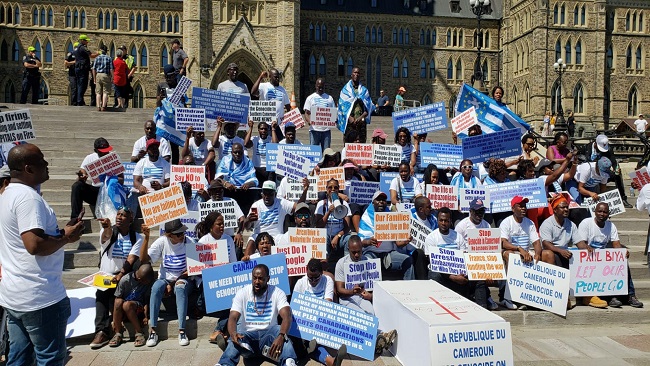


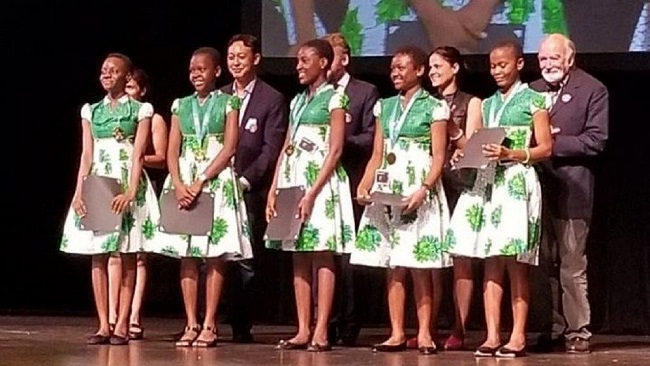
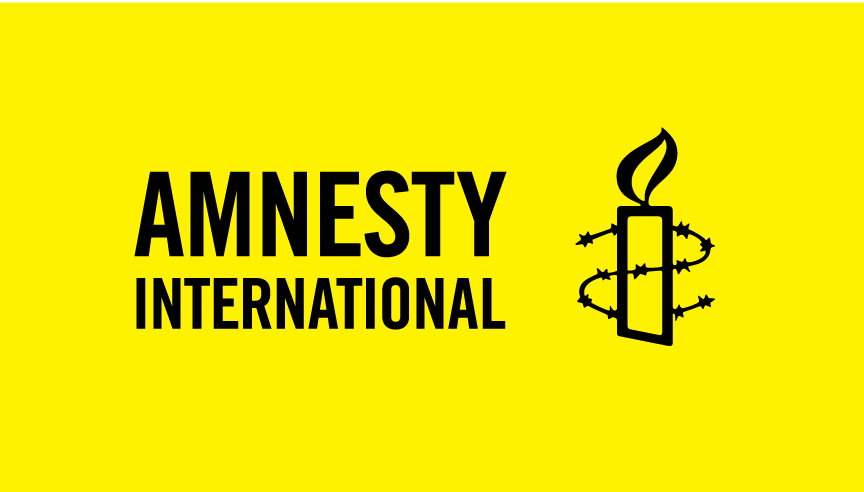
/https://www.thestar.com/content/dam/thestar/news/world/2018/08/10/footage-shows-cameroon-security-forces-executing-unarmed-people-human-rights-group-says/paulbiyapresident.jpg)
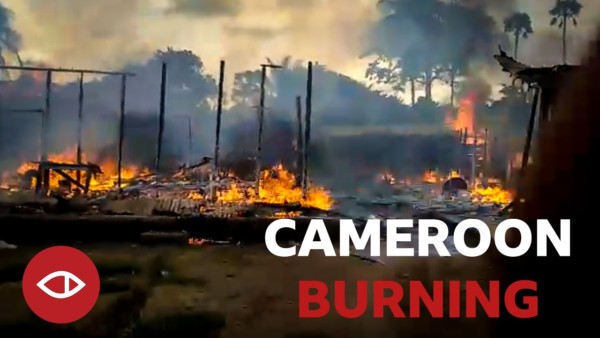
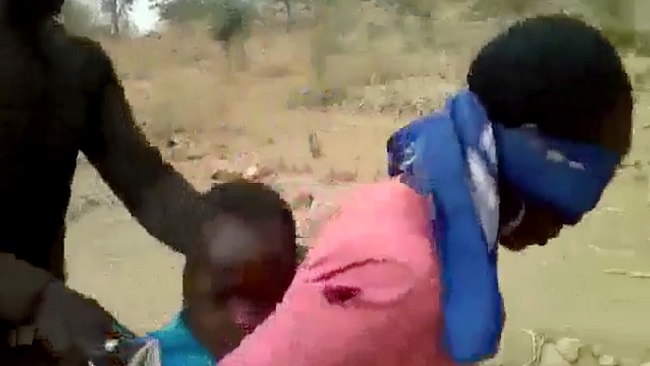
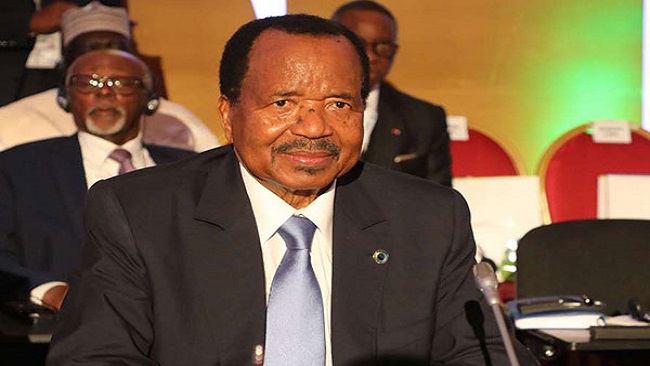
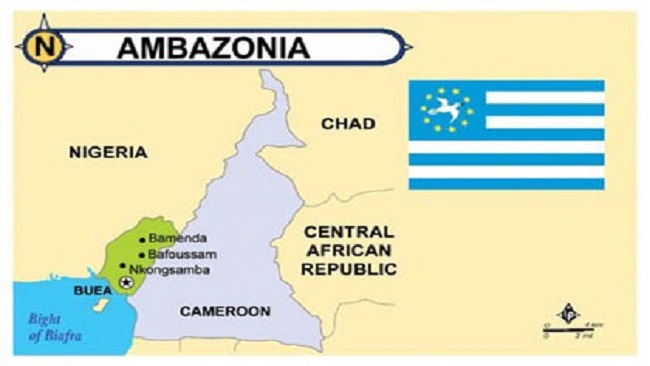
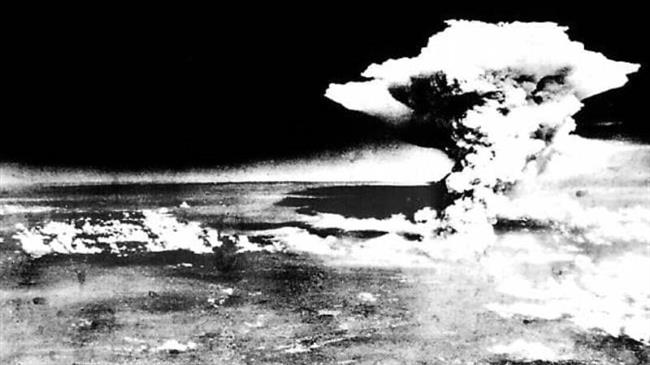



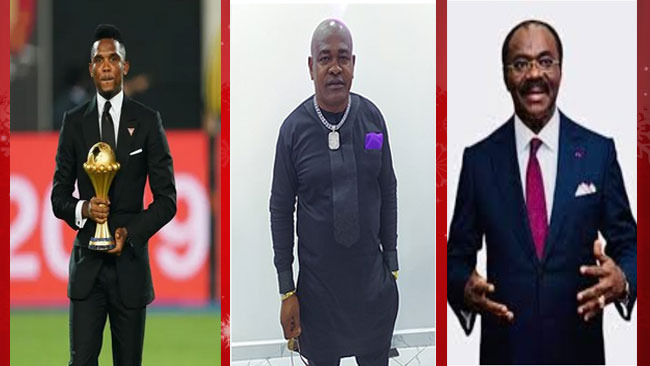










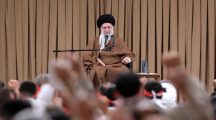






13, August 2018
Southern Cameroons Crisis: Over 2,000 Killed, 170 Villages Burned as Military Seizes Churches 0
Over 2,000 people have been killed and 170 villages burned in English-speaking regions of Cameroon which has halted some Bible translation efforts, a Christian leader has warned.
Violence has escalated in Cameroon’s Anglophone regions in the last 18 months, with reports of French-speaking state forces launching a string of random attacks, kidnappings, and rapes against English-speaking residents and their villages in Western Cameroon.
After English-speaking residents in the Northwest and Southwest regions protested in October 2016 demanding autonomy because they feel underrepresented in the government, violence in those communities escalated throughout 2017.
Last month, the United Nations expressed concern that the violence against those communities has only “worsened considerably” since 2017 as there have been multiple reports of detention, torture, burning down of homes and excessive use of force by state forces.
The U.N. estimates that about 21,000 people have fled to neighboring countries, while 160,000 have been internally displaced by the violence. Many are hiding in the forest.
In a recent interview with Mission Network News, Efi Tembon, the executive director of the Cameroon Association for Bible Translation and Literacy, described the state of the country.
“More than 2,000 people have been killed so far since this started, and more than 170 villages have been burned, and more than 200,000 people are displaced, and more than 100,000 people are refugees in Nigeria,” he said.
Additionally, Tembon said that the military has even killed some pastors and taken over churches to use them as military bases.
Tembon said that there are 38 Bible language projects or projects helping communities with “scripture impact” that have been impacted by the violence.
The violence has caused many of the 400 translators in the regions to be displaced. Many of them are hiding in forests and some have been killed.
“In some communities translation has stopped,” Tembon said.
As for the thousands of people who have fled into the forests, Tembon expressed concern for their well-being.
“There are more people dying in the bushes than [who] are even being killed by bullets because they have no access to medical care,” he explained. “They are sick with Malaria. … Children are dying of malnutrition, [and] they don’t have any food.”
Many of those who fled don’t even have a home to return to, Tembon stressed.
“Their homes have been burned, family members killed, they are living in bushes without food, no clothing, no basic needs, [and] exposed to all kinds of danger,” he said.
Tembon warned that the Cameroonian military has, over recent years, received support and training from the U.S. government.
“This provision was for the fight against Boko Haram. It was well-intentioned, but you know with good intentions, sometimes they have unintended consequences,” Tembon said. “These are being used now to fight against the … people.”
“We think the U.S. has leverage, has some influence to be able to help,” Tembon added. “We are calling on others to write to their senators, to write to their representatives to be aware of this situation so something can be done [and] mediation can take place so peace can return.”
U.N. High Commissioner for Human Rights Zeid Ra’ad Al Hussein urged the Cameroonian government to start an independent investigation into the reports of human rights abuses.
“Given the seriousness of the reports of violence against Cameroonians in the western part of the country, we have asked for access to be able to verify allegations made against both security forces and armed elements,” Zeid said in a statement. “We will now need to explore other options, including remote monitoring.”
According to Mission Network News, the interdenominational Bible translation nonprofit Wycliffe Associates, a partner of Tembon and CABTAL, is raising funds to provide for the displaced Bible translators and to replaced translation equipment.
Source: The Christian Post